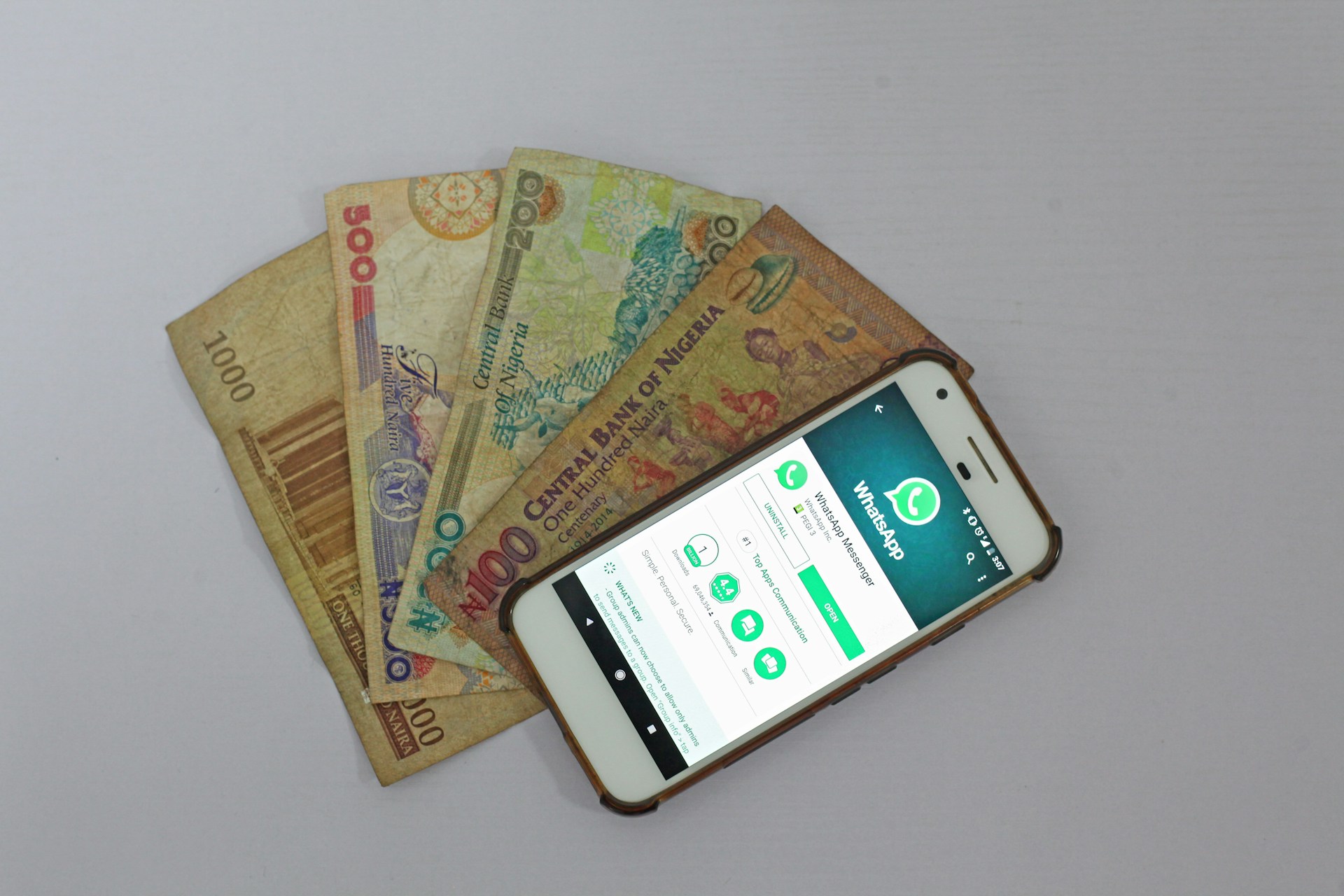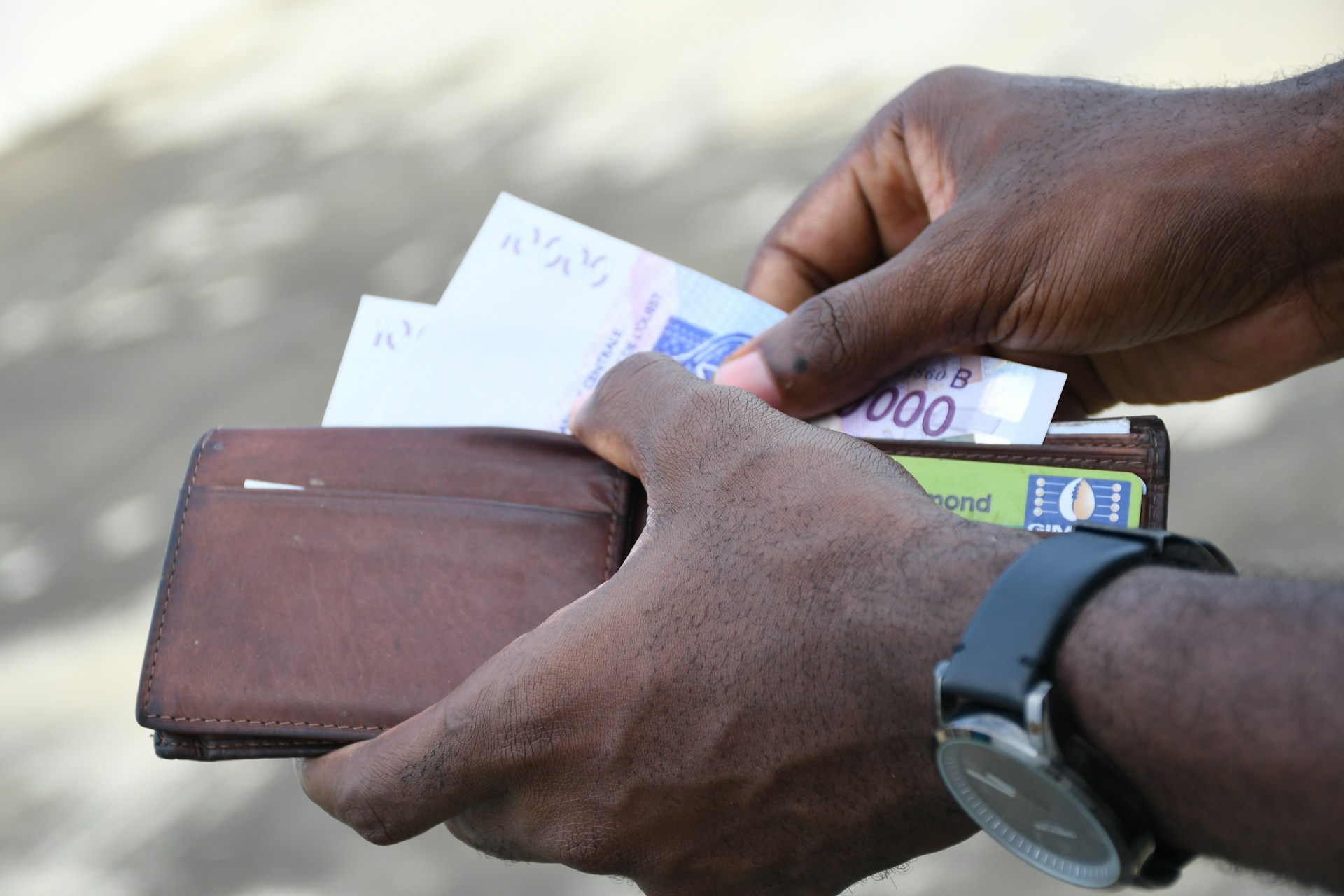
Sep 20, 2024
Why Mobile Money is So Popular in Africa
Mobile money has transformed the financial landscape of Africa, becoming an essential part of daily life for millions. This innovative financial service allows people to conduct transactions through mobile devices, bypassing traditional banking systems. But what factors have contributed to its widespread popularity on the continent? Let's delve into the reasons behind the mobile money boom in Africa.
1. Financial Inclusion for the Unbanked
A significant portion of Africa's population remains unbanked due to limited access to traditional banking infrastructure. Mobile money bridges this gap by providing financial services to individuals who lack bank accounts. With just a basic mobile phone, users can send and receive money, pay bills, and even access microloans.
2. High Mobile Phone Penetration
Over the past two decades, Africa has seen a dramatic increase in mobile phone ownership. According to recent statistics, over 80% of adults in sub-Saharan Africa own a mobile phone. This widespread availability creates a vast platform for mobile money services to reach people across urban and rural areas alike.
3. Convenience and Accessibility
Mobile money offers unparalleled convenience. Users can perform transactions anytime and anywhere, eliminating the need to travel long distances to bank branches or ATMs. This is especially beneficial in rural regions where financial institutions are scarce.
4. Cost-Effective Transactions
Traditional banking transactions can be costly due to fees and transportation expenses. Mobile money reduces these costs significantly, offering affordable transaction fees and eliminating the need for physical travel. This affordability makes it accessible to low-income individuals.
5. Security and Trust
Carrying cash poses risks such as theft or loss. Mobile money provides a secure alternative by allowing users to store funds electronically. Enhanced security measures like PIN codes and encryption build trust among users who might be wary of traditional banking systems.
6. Supportive Regulatory Environment
Many African governments have embraced mobile money as a tool for economic development. Supportive policies and regulations have facilitated the growth of mobile money services, ensuring consumer protection while encouraging innovation in the financial sector.
7. Cultural Practices and Remittances
Sending money to family members in different regions is a common practice in African cultures. Mobile money simplifies remittances, enabling instant transfers without the need for intermediaries. This ease of use has significantly boosted its adoption.
8. Innovation and Technological Advancement
African fintech companies have been at the forefront of developing mobile money solutions tailored to local needs. Continuous innovation has led to the introduction of additional services like savings accounts, insurance, and credit facilities accessible via mobile platforms.
9. Overcoming Infrastructure Challenges
Africa faces infrastructural challenges, including limited access to physical banks and ATMs. Mobile money leverages existing mobile networks to provide financial services, circumventing the need for extensive physical infrastructure.
10. Economic Empowerment
By facilitating access to financial services, mobile money empowers small businesses and entrepreneurs. It enables them to conduct transactions efficiently, access credit, and expand their operations, thereby contributing to economic growth.
11. International Recognition and Investment
The success of mobile money in Africa has attracted global attention. International investors and organizations are investing in African fintech, providing capital and expertise that further drive the expansion and improvement of mobile money services.
Conclusion
Mobile money's popularity in Africa is the result of a confluence of factors, including high mobile phone penetration, the necessity for financial inclusion, and the convenience it offers. By addressing specific challenges faced by the continent, mobile money has not only revolutionized how people handle finances but has also played a pivotal role in economic development and empowerment. As technology continues to advance, mobile money is poised to remain a cornerstone of Africa's financial ecosystem, fostering greater inclusion and prosperity.
Mobile money has transformed the financial landscape of Africa, becoming an essential part of daily life for millions. This innovative financial service allows people to conduct transactions through mobile devices, bypassing traditional banking systems. But what factors have contributed to its widespread popularity on the continent? Let's delve into the reasons behind the mobile money boom in Africa.
1. Financial Inclusion for the Unbanked
A significant portion of Africa's population remains unbanked due to limited access to traditional banking infrastructure. Mobile money bridges this gap by providing financial services to individuals who lack bank accounts. With just a basic mobile phone, users can send and receive money, pay bills, and even access microloans.
2. High Mobile Phone Penetration
Over the past two decades, Africa has seen a dramatic increase in mobile phone ownership. According to recent statistics, over 80% of adults in sub-Saharan Africa own a mobile phone. This widespread availability creates a vast platform for mobile money services to reach people across urban and rural areas alike.
3. Convenience and Accessibility
Mobile money offers unparalleled convenience. Users can perform transactions anytime and anywhere, eliminating the need to travel long distances to bank branches or ATMs. This is especially beneficial in rural regions where financial institutions are scarce.
4. Cost-Effective Transactions
Traditional banking transactions can be costly due to fees and transportation expenses. Mobile money reduces these costs significantly, offering affordable transaction fees and eliminating the need for physical travel. This affordability makes it accessible to low-income individuals.
5. Security and Trust
Carrying cash poses risks such as theft or loss. Mobile money provides a secure alternative by allowing users to store funds electronically. Enhanced security measures like PIN codes and encryption build trust among users who might be wary of traditional banking systems.
6. Supportive Regulatory Environment
Many African governments have embraced mobile money as a tool for economic development. Supportive policies and regulations have facilitated the growth of mobile money services, ensuring consumer protection while encouraging innovation in the financial sector.
7. Cultural Practices and Remittances
Sending money to family members in different regions is a common practice in African cultures. Mobile money simplifies remittances, enabling instant transfers without the need for intermediaries. This ease of use has significantly boosted its adoption.
8. Innovation and Technological Advancement
African fintech companies have been at the forefront of developing mobile money solutions tailored to local needs. Continuous innovation has led to the introduction of additional services like savings accounts, insurance, and credit facilities accessible via mobile platforms.
9. Overcoming Infrastructure Challenges
Africa faces infrastructural challenges, including limited access to physical banks and ATMs. Mobile money leverages existing mobile networks to provide financial services, circumventing the need for extensive physical infrastructure.
10. Economic Empowerment
By facilitating access to financial services, mobile money empowers small businesses and entrepreneurs. It enables them to conduct transactions efficiently, access credit, and expand their operations, thereby contributing to economic growth.
11. International Recognition and Investment
The success of mobile money in Africa has attracted global attention. International investors and organizations are investing in African fintech, providing capital and expertise that further drive the expansion and improvement of mobile money services.
Conclusion
Mobile money's popularity in Africa is the result of a confluence of factors, including high mobile phone penetration, the necessity for financial inclusion, and the convenience it offers. By addressing specific challenges faced by the continent, mobile money has not only revolutionized how people handle finances but has also played a pivotal role in economic development and empowerment. As technology continues to advance, mobile money is poised to remain a cornerstone of Africa's financial ecosystem, fostering greater inclusion and prosperity.
Mobile money has transformed the financial landscape of Africa, becoming an essential part of daily life for millions. This innovative financial service allows people to conduct transactions through mobile devices, bypassing traditional banking systems. But what factors have contributed to its widespread popularity on the continent? Let's delve into the reasons behind the mobile money boom in Africa.
1. Financial Inclusion for the Unbanked
A significant portion of Africa's population remains unbanked due to limited access to traditional banking infrastructure. Mobile money bridges this gap by providing financial services to individuals who lack bank accounts. With just a basic mobile phone, users can send and receive money, pay bills, and even access microloans.
2. High Mobile Phone Penetration
Over the past two decades, Africa has seen a dramatic increase in mobile phone ownership. According to recent statistics, over 80% of adults in sub-Saharan Africa own a mobile phone. This widespread availability creates a vast platform for mobile money services to reach people across urban and rural areas alike.
3. Convenience and Accessibility
Mobile money offers unparalleled convenience. Users can perform transactions anytime and anywhere, eliminating the need to travel long distances to bank branches or ATMs. This is especially beneficial in rural regions where financial institutions are scarce.
4. Cost-Effective Transactions
Traditional banking transactions can be costly due to fees and transportation expenses. Mobile money reduces these costs significantly, offering affordable transaction fees and eliminating the need for physical travel. This affordability makes it accessible to low-income individuals.
5. Security and Trust
Carrying cash poses risks such as theft or loss. Mobile money provides a secure alternative by allowing users to store funds electronically. Enhanced security measures like PIN codes and encryption build trust among users who might be wary of traditional banking systems.
6. Supportive Regulatory Environment
Many African governments have embraced mobile money as a tool for economic development. Supportive policies and regulations have facilitated the growth of mobile money services, ensuring consumer protection while encouraging innovation in the financial sector.
7. Cultural Practices and Remittances
Sending money to family members in different regions is a common practice in African cultures. Mobile money simplifies remittances, enabling instant transfers without the need for intermediaries. This ease of use has significantly boosted its adoption.
8. Innovation and Technological Advancement
African fintech companies have been at the forefront of developing mobile money solutions tailored to local needs. Continuous innovation has led to the introduction of additional services like savings accounts, insurance, and credit facilities accessible via mobile platforms.
9. Overcoming Infrastructure Challenges
Africa faces infrastructural challenges, including limited access to physical banks and ATMs. Mobile money leverages existing mobile networks to provide financial services, circumventing the need for extensive physical infrastructure.
10. Economic Empowerment
By facilitating access to financial services, mobile money empowers small businesses and entrepreneurs. It enables them to conduct transactions efficiently, access credit, and expand their operations, thereby contributing to economic growth.
11. International Recognition and Investment
The success of mobile money in Africa has attracted global attention. International investors and organizations are investing in African fintech, providing capital and expertise that further drive the expansion and improvement of mobile money services.
Conclusion
Mobile money's popularity in Africa is the result of a confluence of factors, including high mobile phone penetration, the necessity for financial inclusion, and the convenience it offers. By addressing specific challenges faced by the continent, mobile money has not only revolutionized how people handle finances but has also played a pivotal role in economic development and empowerment. As technology continues to advance, mobile money is poised to remain a cornerstone of Africa's financial ecosystem, fostering greater inclusion and prosperity.
Our latest stories:


Sep 20, 2024
PressPay Becomes Faranga


Sep 20, 2024
How to Develop Better Spending Habits


Sep 20, 2024
Why Mobile Money is So Popular in Africa
See all posts


